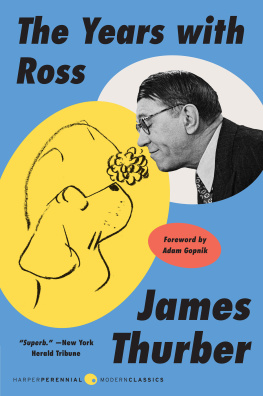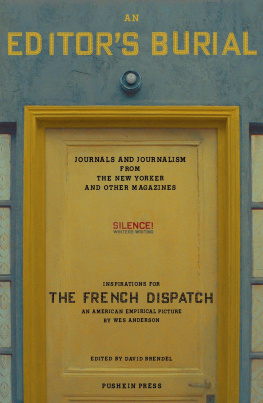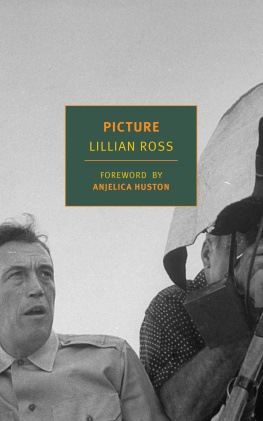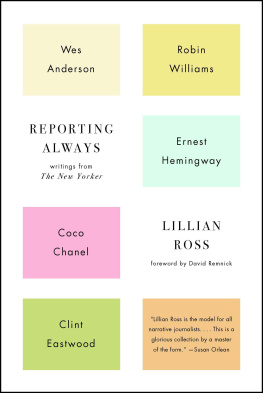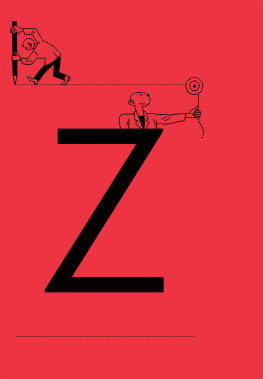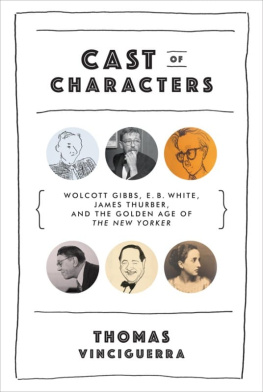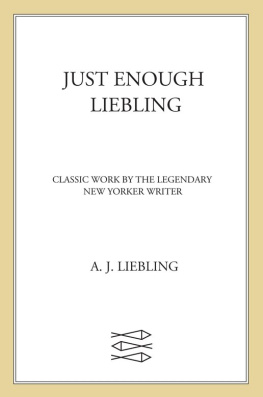Acknowledgments
A writer is comforted and supported by many hidden friends and enablers. Here are the names of some of my treasured helpers along the way:
Peggy Wright Weidman, Richard Giovanni, I. F. Stone, Harold Ross, William Shawn, Tina Brown, Harry Evans, Sanderson Vanderbilt, Gardner Botsford, James Thurber, Wolcott Gibbs, John Hersey, John McCarten, Bill Steig, Peter Arno, Charles Addams, Scottie Fitzgerald Lanahan, Andy Logan, Helen Ross, Simeon Ross, S. N. Behrman, Philip Hamburger, Joseph Mitchell, A. J. Liebling, Geoffrey Hellman, David Kuhn, Lola Finkelstein, Jeffrey Frank, Gloria Yanardi, Olga Torres, Sam Gelfman, Jane Gelfman, Cathy Gleason, Norman Mailer, Frank Stanton, George Sheanshang, Wayne Warnken, Prue Harper, Ernest Hemingway, Mary Hemingway, Patrick Hemingway, Chiz Schultz, Marian White, Roz Lippel, Mace Neufeld, John Huston, Anjelica Huston, Tony Huston, Danny Huston, Allegra Huston, Gottfried Reinhardt, Silvia Reinhardt, L. B. Mayer, Dore Schary, Robin Williams, Marsha Williams, Laurie Williams, Chris Columbus, Bobby Kotik, Cathy Register, John Register, Clint Eastwood, Dina Eastwood, Ruth Eastwood, Bruce Ricker, Rebecca Spencer, Dan Spencer, Cyndi Margolis, Wendy Ingraham, Lorne Michaels, Susan Forristal, Cristina McGinniss, Bing Gordon, Debra Gordon, Henry Rosovsky, Nitza Rosovsky, Michael Rosovsky, Bill Alfred, Emma Allen, Bruce Diones, Stanley Chang, Janet Sparrow, Maria Jaramovic, Harvey Goldberg, Sam Rappaport, John Buchheit, Dick Bernard, Bernard Holand, Jonathan Schell, David Remnick, Hendrik Hertzberg, Virginia Cannon, Bob Mankoff, Francoise Mouly, Lizzie Widdicombe, Evan Osnos, Jeff Toobin, Brenda Phipps, Seth Berkman, Lisa Birnbach, Lauren Collins, Nick Paumgarten, Marshall Heyman, Pam McCarthy, Tom Mangan, Richard Brody, Hilton Als, and Peter Canby.
Special thanks to Susan Morrison and Erik Ross for their indispensable and undescribable efforts.
ALSO BY LILLIAN ROSS
Reporting Back
Picture
Portrait of Hemingway
Vertical and Horizontal
The Player (with Helen Ross)
Takes
Talk Stories
Moments with Chaplin
Adlai Stevenson
Reporting
The Fun of It (as Editor)
Here But Not Here

LILLIAN ROSS is an American journalist and author who has been a staff writer at The New Yorker since 1945. She began as a Talk of the Town reporter and, over the course of her career, has written hundreds of pieces, contributing to nearly every section of the magazine.
MEET THE AUTHORS, WATCH VIDEOS AND MORE AT
SimonandSchuster.com
authors.simonandschuster.com/Lillian-Ross
Young and Happy
(Julie Andrews)
O ne of the great moments in the theatre is supposed to be when a shining-eyed young actress first sees her name on a marquee. That great moment actually arrives every now and then, and were glad to say that we were on hand when it arrived last week. The girl was Julie Andrews, the nineteen-year-old English ingnue who plays the lead in The Boy Friend , and she is the only member of either the local company or the company in London, where the original version of the musical comedy is still running, to be so honored. We met the pretty creature at her hotel in midtown, where she shares a two-room apartment with Miss Dilys Lay, also of The Boy Friend , and three stuffed poodles. Miss Andrews is a tallish girl with a gentle voice, large blue-gray eyes, and brown hair, which she parts in the middle. On the occasion of our visit, she was wearing a red cardigan, a blue skirt, and high-heeled blue sandals. Do sit down! she exclaimed, sweeping a box of Chinese checkers from a couch. I was just mailing some photographs of myself in the show to Mother. She hasnt seen me in it and wants to know how I look. Theres a chance she may come over after the first of the year and Ill be so happy if she does. I do hope Ive put enough stamps on the envelope. Im terribly homesick. Not that I dont love New York, but one does get homesick. Would you like a cup of tea?
We were aware that JULIE ANDREWS had just that day been affixed to the marquee outside the Royale Theatre, and we asked the owner of the name if, since it was getting on toward time for the evening performance, we might skip tea and escort her to the theatre, to which she replied that we might indeed. Still, it is a comfort to have this little flat to drink tea in, isnt it? she said. And to sit in on Sundays and watch the television? Dilys and I share a dressing room at the theatre, too. We share almost everything. Each of us has a dog at home, whom we miss dreadfully. Mine is a Welsh corgi, the sort the Queen has. No tails, you know, and sweet little faces and tiny little bodies. Such lovely dogs! I was thinking of getting one here, but then I realized how stupid it would be to try and keep a dog in a flat in New York. Dilys gave me that stuffed white poodle over there, insteadas a present on my birthday, which was the day after the show opened. It was a marvelous birthday; except for the fact that I wasnt home, I think it was the best Ive ever had or am ever likely to have.
Home to Miss Andrews is Walton-on-Thames, a small town eighteen miles south of London. My pop used to be in show business with Mummy, she said. His name is Ted Andrews and he has such a lovely voice. He used to sing ballads like Love, Could I Only Tell Thee How Dear Thou Art to Me. Its a beautiful number, and Id rather listen to it than anything. Mummy always wanted to be just Mummy, so Pop gave up show business. Now he has a nine-to-five job, and a very good one it is. I have three brothers, John, Donald, and Christopher, all younger than I am. If youve seen the show, youve heard me whistle. I say that if you cant whistle in a house that has three boys in it, youre simply no good. Perhaps wed better be off. Miss Andrews sang a few bars of Love, Could I Only Tell Thee in a melting soprano as she put on her coat, then announced proudly that she had been practicing scales for a solid hour. My voice really needed it, she said. It was so stale. I had such a good practice. I feel very righteous.
En route to the theatre, Miss Andrews told us that her father started giving her voice lessons when she was seven. At the same time, she began attending a ballet school. When she was twelve, she embarked on a career in the music halls. This is my first musical comedy, she said. Im more of a singer than an actress. I had to learn a wholly new way of acting for this show. My own style is rather quiet. Im the only girl in the show who wears a wig, and nobody recognizes me without it when I leave the theatre. Were having a terribly good time, The Boy Friend company. Were all so young and happy. I didnt need to be especially thrilled when they told me the other day that they were going to give me featured billing. I think it would be being a bit of a big shot, dont you, to actually look at my name up there? Not that anyone would recognize me without my wig, but Our taxi pulled up just short of the theatre, and we got out. For a moment, Miss Andrews kept her face turned away from the theatre, then we heard her whisper, Ah, there it is! Over her head the marquee proclaimed:
THE
BOY FRIEND
SMASH HIT MUSICAL COMEDY
WITH JULIE ANDREWS
And, sure enough, her eyes were shining.
(NOVEMBER 11, 1954)
Come In, Lassie!
H ollywood is baffled by the question of what the Committee on Un-American Activities wants from it. People here are wondering, with some dismay and anxiety, what kind of strange, brooding alienism the Committee is trying to eliminate from their midst and, in fact, whether it was ever here. They are waiting hopefully for Chairman J. Parnell Thomas, or Congress, or God, to tell them. They have been waiting in vain ever since last November, when eight writers, a producer, and a directoroften collectively referred to these days as the ten writerswere blacklisted by the studios because they had been charged with contempt of Congress for refusing to tell the Thomas Committee what political party, if any, they belong to. In the meantime, business, bad as it is, goes on. The place is more nervous than usual, but it is doing the same old simple things in the same old simple ways.


